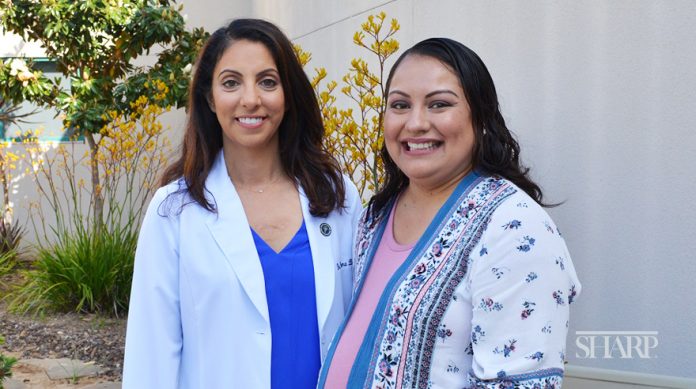
Ana Ramirez has an easygoing smile that lights up a room when she enters. These days, she has lots to smile about, which wasn’t the case in 2016.
Ana was only 31 at the time and diagnosed with breast cancer.
“I was scared. I thought I was going to die and I thought about what would happen to my kids,” she says. “But medicine is very advanced right now, and I tried to stay positive.”
Ana works as a medical assistant in a pediatric practice. She loves kids and has three beautiful children ranging from 12 to 16 years old. And when she was diagnosed, she hadn’t ruled out the possibility of having more.
Breast cancer in younger women and fertility
According to the American Cancer Society, some breast cancer treatments may affect a woman’s ability to have a baby, including chemotherapy, which can cause immediate or delayed infertility. Still, many women can go on to become pregnant.
Most common in older women, the median age for a breast cancer diagnosis in the U.S. is 62 — Ana was half that age.
According to Dr. Reema Batra, a board-certified oncologist affiliated with Sharp Grossmont Hospital, “Chemotherapy can lead to infertility. If a woman of childbearing age is diagnosed with breast cancer, the best time to talk about having children in the future is before starting treatment.”
“Prior to starting chemotherapy, a woman can freeze eggs or embryos, freeze ovarian tissue or suppress her ovaries. There are also some other techniques that are much less commonly used.”
She adds, “All women of childbearing age should be offered these choices. Of course, some patients need to be started on treatment urgently, so timing may just not work out.”
Ana’s treatment
Ana’s breast cancer was aggressive, so time was of the essence. For this reason, to help preserve her fertility, ovarian suppression was used.
Dr. Batra says, “This method protects the ovaries and can decrease the chance of infertility. Another option would have been to stimulate the ovaries to make eggs prior to starting chemotherapy and then doing cryopreservation, or freezing. But we needed to start treatment quickly, so unfortunately, this wasn’t an option.”
Over the course of several months, Ana received chemotherapy, radiation therapy and surgery to treat her cancer. Chemotherapy can have unpleasant side effects including fatigue, nausea, vomiting, diarrhea, hair loss and other serious complications, but Ana didn’t get sick.
“I feel very lucky. There were days when I felt down, but I tried to keep a smile on my face and stay positive. I did lose my hair though,” she says.
In a show of solidarity, when Ana lost her hair, her grandmother shaved her own head. “She told me she loved me and that’s how she was going to show her support.”
Getting support
It’s well-documented that cancer patients with strong support and social networks have better outcomes. For Ana, her faith, family, boyfriend and kids were her support system — and she’s grateful for them.
“I really drew strength from my kids. I told myself they need me, and I need to be here for them. I can’t lose this battle, I have to win it for them,” she says.
“Dr. Batra was great, too. She never made me feel like I was doing anything alone. She was always there, and she explained everything anytime I had questions.”
You’re expecting!
Ana is now cancer-free. While no longer in treatment, she’s monitored regularly.
She says, “In December 2018, after my PET scan I got a call from Dr. Batra. I didn’t call her back right away but had an appointment with her in early January.”
“I had received a call from the radiologist that Ana appeared to have a pregnancy on the scan,” says Dr. Batra. “I called her immediately, but didn’t hear back. When I saw her, she had no idea she was pregnant. I had the honor of breaking the news to her and that was a special moment. Often, I have to deliver bad news, but this was something positive.”
Ana laughs and says, “I thought I was going to pass out! I said, ‘Are you serious?!’ I was very happy!”
When asked what advice she would give to others in her situation, Ana says, “Stay strong, listen to your body, have faith and never give up.”
This article features experts from Sharp Grossmont Hospital. Visit www.sharp.com/news.












